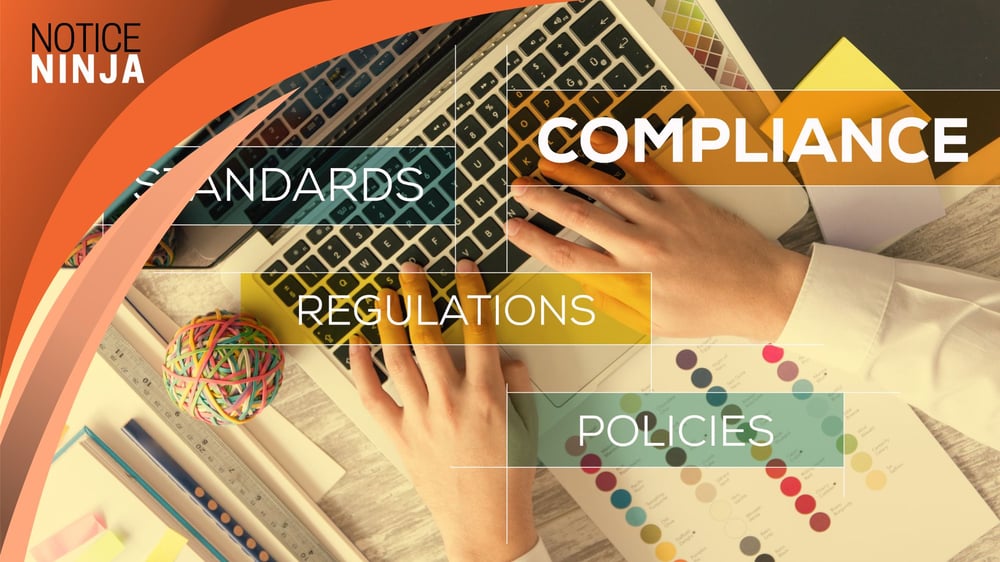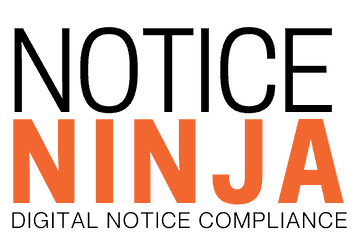Yes, NOTICENINJA is corporate tax notice compliance software that automates key workflows including notice assignments. The platform employs a rule-based system that can manage multiple level rules and ensure notices are directed to the appropriate stakeholder. As a result, you’ll never have to worry about notices being misdirected or slipping between the cracks.

Payroll Tax Management: How to Keep Your Business Compliant

24 April
Payroll Tax Management is Crucial for Businesses that Want to Stay Compliant with Tax Regulations
At its core, payroll tax management involves overseeing the collection, reporting, and payment of payroll-related taxes to government authorities.
In today’s hybrid work era and highly regulated environment, payroll tax management has become more than just an administrative task—it’s a critical compliance function. With employees working remotely across multiple states, the complexity of withholding and reporting payroll taxes has significantly increased. If you’re not actively managing this complexity, you could be exposing your business to costly fines and legal risk.
This guide breaks down what you need to know about staying compliant—and how automation tools like NOTICENINJA's are transforming payroll tax management for good.
The Growing Challenge of Payroll Tax Compliance
As more companies embrace remote and hybrid work models, employees are no longer tied to one state. But this flexibility creates a payroll nightmare for HR, payroll, and compliance teams. Why?
Because states can tax income both where someone lives and where they work. Even if your employee just steps into another state’s office for a few days a year, you may need to start withholding income taxes for that state.
According to this Tax Foundation article, state rules on nonresident taxation are inconsistent and complicated. Some states want taxes from day one. Others have “30-day rules.” A few states have “convenience of the employer” rules (hello, New York), taxing workers even if they never physically set foot in the state—just because their employer is based there.
Let’s say your business is based in Illinois but your employee lives in Indiana and occasionally visits the office. Depending on the reciprocity agreement—or lack thereof—you might need to withhold taxes in both states. These nuances can lead to double taxation if you’re not paying attention.
Why Tracking Work Location Matters
To stay compliant, your payroll team needs to know where your employees are working—down to the day. The stakes are high: failing to withhold the right state income taxes can lead to audits, penalties, and frustrated employees facing unexpected tax bills.
Here’s what businesses need to start doing today:
- Track employee work locations accurately and in real time
- Understand thresholds for nonresident taxation in each state
- Apply for state tax IDs and withhold appropriately as required
- Document everything in case of an audit
Best Practices for Multi-State Payroll Tax Compliance
- Know the State Rules
Every state has different rules on when nonresident withholding kicks in. Use a centralized reference or partner with a payroll solution that updates state tax thresholds regularly.
- Watch Out for Convenience Rules
States like New York apply taxes based on your company’s location—not where the employee actually works. These “convenience of the employer” rules can trigger unexpected liabilities.
- Check Reciprocity Agreements
Some neighboring states have agreements that allow only the employee’s home state to tax their wages. Know which states have these pacts and how to apply them properly.
- Automate Where You Can
Tools like NOTICENINJA help manage complexity by:
- Scanning and processing tax notices via OCR
- Automating workflows for faster resolution
- Alerting you to compliance issues before they escalate
- Managing multi-state notices in a centralized system
- Stay Organized
Keep detailed records of where employees worked, when, and for how long. Use time-tracking or geolocation tools integrated with your payroll software.
Why Businesses Can’t Afford to Ignore This
If you think this only affects large corporations, think again. According to the Tax Foundation, even occasional work in another state—like a day trip—can trigger withholding requirements. And yet, 40% of small businesses get fined for payroll tax issues every year, often due to lack of awareness.
Research from NOTICENINJA shows that multi-jurisdictional compliance is a top challenge across industries—from PEOs and CPA firms to private equity and enterprise corporations. Manual processes and fragmented systems simply can’t keep up.
Compliance Isn’t Just a Burden—It’s an Opportunity
Implementing robust payroll tax compliance processes is more than just risk management. It’s a chance to:
- Boost employee trust by avoiding tax surprises
- Improve your audit-readiness
- Enhance your reputation with clients and regulators
- Free up teams to focus on strategic growth initiatives
Companies using NOTICENINJA report improved turnaround time on tax notices, fewer penalties, and higher employee satisfaction from faster issue resolution. Whether you’re managing payroll for 5,000 employees or supporting 1,000+ clients as a payroll service provider, automation pays for itself.
The Path Forward
As states reconsider tax policies for remote work, many experts—including the Tax Foundation—recommend simplifying the landscape with:
- Clear thresholds (like a 30-day rule for taxing nonresidents)
- Expanded reciprocity agreements
- Consistent, easy-to-follow compliance guidelines
But until that happens, it’s on you as the employer to manage these requirements.
Simplify Payroll Tax Compliance with the Right Tools
If your business has remote or traveling employees—or if you're a PEO, payroll provider, or corporate tax department dealing with complex, multi-state operations—you need a proactive approach to payroll tax compliance.
Don’t wait for an audit to expose the gaps. Adopt tools like NOTICENINJA to reduce risk, automate workflows, and centralize multi-state tax notice management.
Track work locations
Apply correct withholdings
Avoid double taxation
Resolve tax notices faster
Support your team with automation
Want to See What Can Go Wrong—Before It Happens to You?
Download Why You Needed Tax Notice Automation Yesterday to see how to transform your business—and how NOTICENINJA can help.
RELATED POSTS
- How New State Tax Changes Will Reshape Compliance for Businesses
- The High-Stakes Game of Multi-State Tax Compliance
